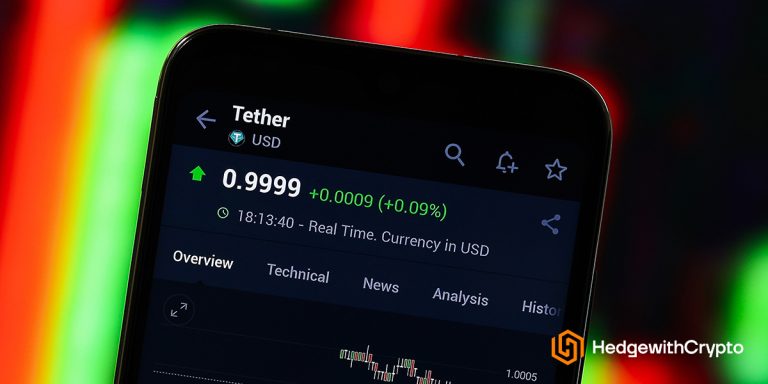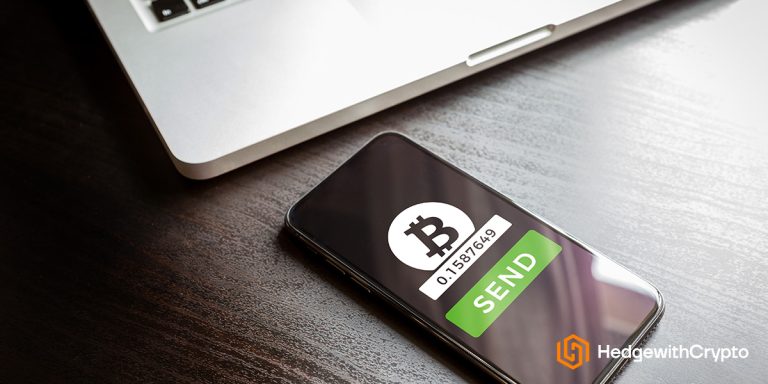This Is How Long It Takes To Transfer Bitcoin
Key Takeaways:
- Bitcoin transaction speeds typically last between 10 and 60 minutes, with an average of 11 minutes.
- The primary factors that determine how fast a Bitcoin transaction can take place include the number of validations, fees, congestion, and block size.
- Increasing the miner's fee using a priority withdrawal can speed up a Bitcoin transaction.
TABLE OF CONTENTS
How Long Does It Take To Send Bitcoin?
Bitcoin's transaction speed can vary between 10 minutes and 1 hour depending on the number of confirmations required to validate every block on the network. Based on the current median confirmation time, the average time to complete a single Bitcoin confirmation is approximately 11 minutes. Therefore, a successful Bitcoin transfer to another wallet can take between 30 and 60 minutes to be confirmed on the blockchain network.
Other factors, such as network congestion and transaction fees, can increase the Bitcoin transfer speed to several hours, which is very slow. To find out which cryptocurrencies are faster than Bitcoin, read this article.
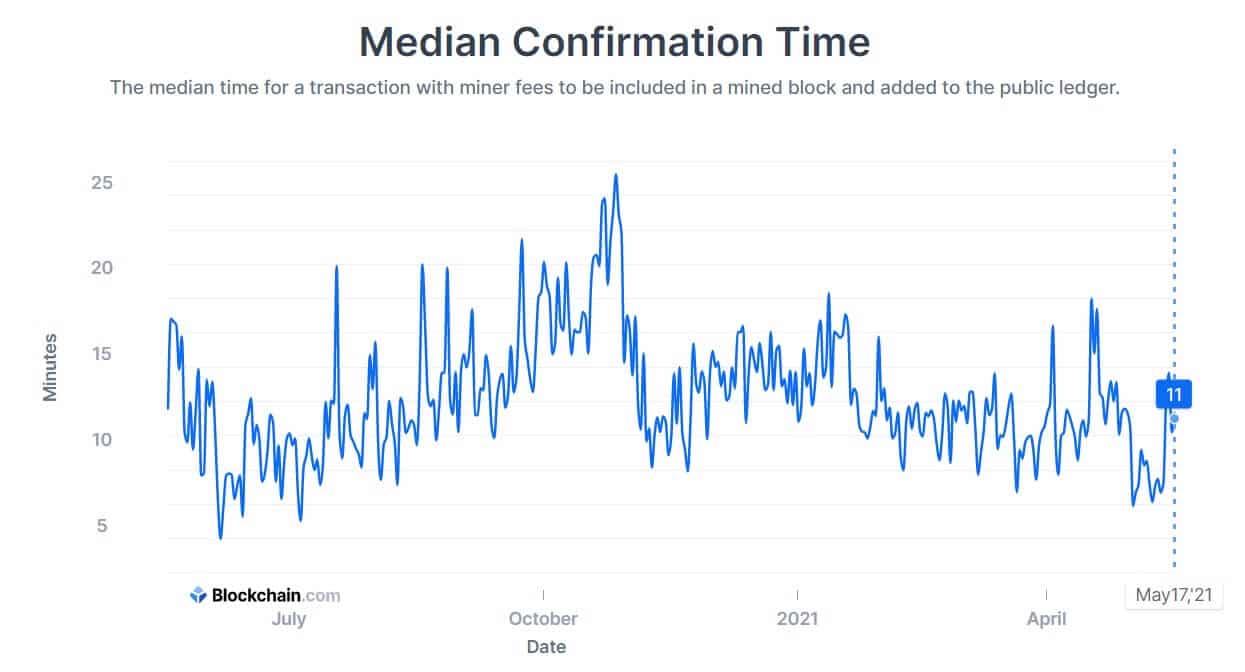
Factors That Affect The Bitcoin Transfer Speed
If you're wondering why a Bitcoin transaction is taking so long, several factors can affect its speed. These can include the amount of traffic on the Bitcoin network, the fee offered for the BTC transaction, and the block size and time.
Traffic
The amount of congestion or traffic on the Bitcoin network is directly related to the speed of a transaction. For example, if there is a lower amount of transactions occurring at a particular time, the network traffic will be reduced resulting in quicker Bitcoin confirmations. In contrast, if there is a sudden increase in the number of transactions at a particular time, the traffic will be high and can cause delays in confirming the transaction. Sending Bitcoin during a low network usage period, such as the weekend, can potentially result in a faster Bitcoin transaction speed.
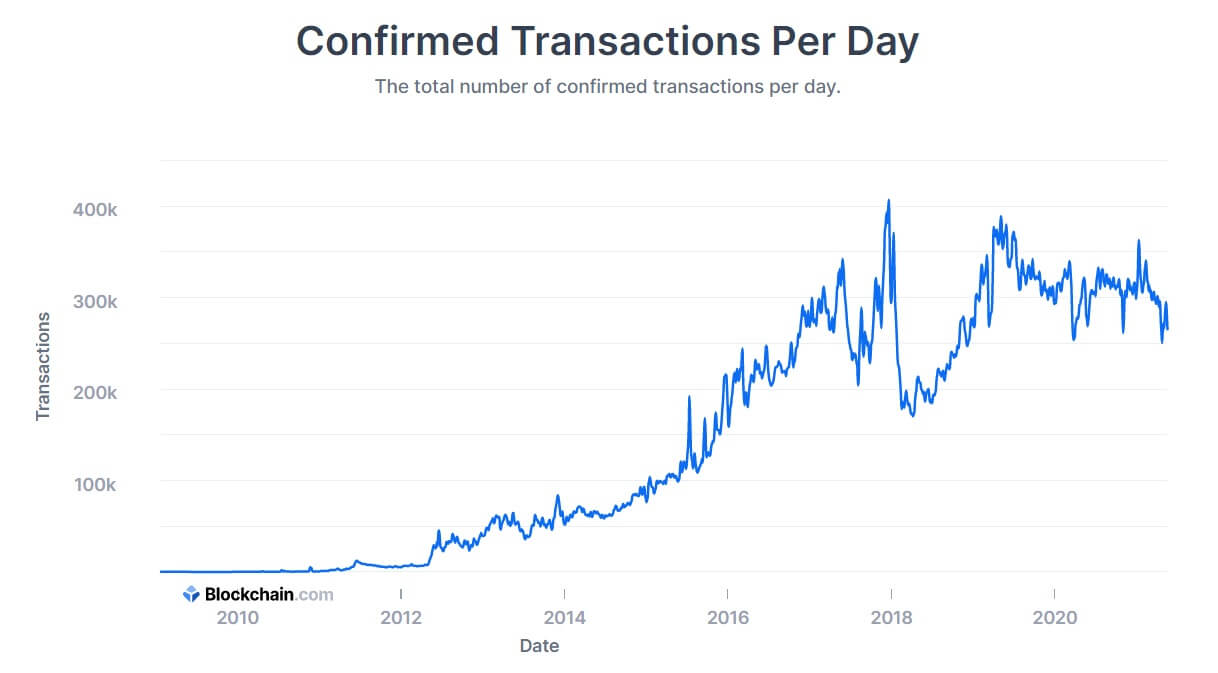
Over the last year, the number of Bitcoin transactions per day has reduced slightly, which has resulted in quicker Bitcoin transfer speeds to validate and confirm a transaction. According to data from Blockchain.com, there are approximately 270,000 confirmed Bitcoin transactions processed every 24 hours.
Fees
Bitcoin transactions have fees paid to the miners for their effort to validate and confirm the transaction on the blockchain network. The fees sent with a Bitcoin transaction can impact the confirmation speed. Transmitting a Bitcoin transaction with a higher fee can encourage the miners to prioritize the particular transaction within the block. Sending a transaction with a low fee can result in a transaction remaining unconfirmed for a longer period of time and possibly being rejected.
Block Size
The Bitcoin blockchain network has a fixed maximum block size of 1 Megabyte (MB). Each block contains batches of Bitcoin transactions that have been confirmed by the miners and made public on the blockchain. There can only be so many transactions in each block. Therefore, an increase in Bitcoin usage through adoption can result in blocks quickly reaching the 1MB capacity.
Block Time
Bitcoin has been designed by its creator Satoshi Nakamoto to have a 10-minute time to generate or mine a new block. Based on the fixed block size, block time, and average transaction size, this means Bitcoin can only process about 4.6 transactions per second. When there is an increase in network usage, there can be delays in the time required to send and receive Bitcoin transactions.
You Can Speed Up A Bitcoin Transaction: Here's How
It is possible to increase the speed of a Bitcoin transaction below the median time of 11 minutes. The two most common methods are to increase the miner's fees or use a Bitcoin accelerator.
1. Increase The Fee
One of the safest ways to quicken the speed of a Bitcoin transaction is to increase the miner's fee using a priority withdrawal. Some Bitcoin wallets allow the user to choose between a “standard” or “priority” fee when making a BTC withdrawal. The cost has ranged between $2 and $62 this year with a median transaction fee of $13.44. By sending a transaction with a fee greater than the median costs, Bitcoin miners are incentivized to quickly select the transaction within the block which will reduce the overall confirmation times.
This method can also be used to resolve an unconfirmed Bitcoin transaction that is stuck. Referred to as ‘replace-by-fee,' it involves resending with a higher fee to remove the original transaction and increase the incentive for miners to process it.
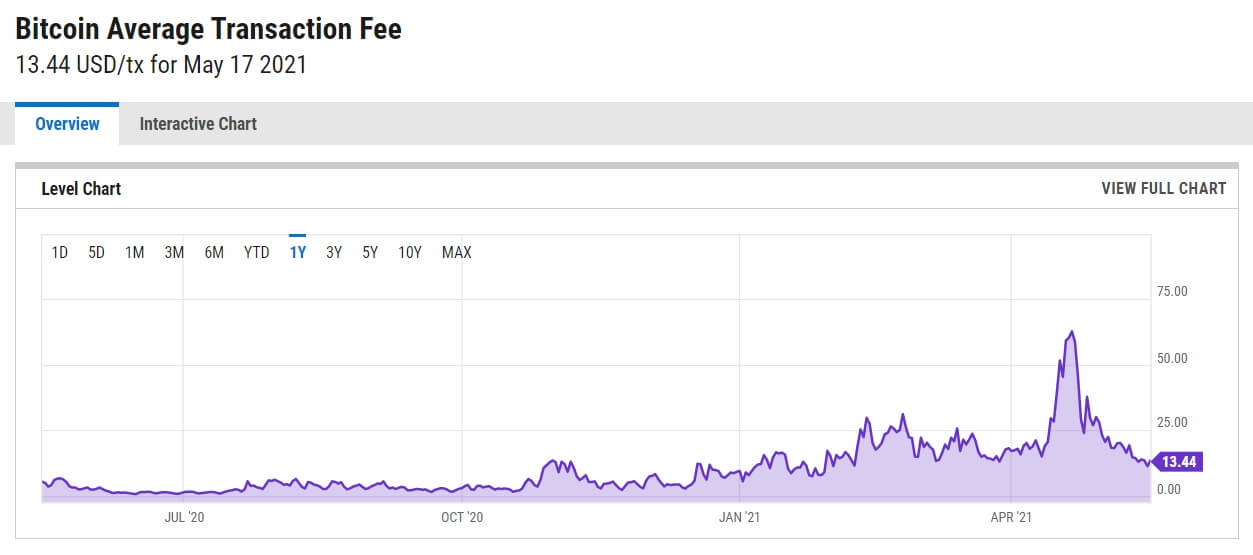
2. Use A Mining Pool Accelerator
A popular way to increase the speed of a Bitcoin transaction is to use Bitcoin mining pool accelerators. These are external services usually run by miners that offer a premium service to accelerate the speed of confirmations for a slightly higher fee. Examples of the top Bitcoin mining pools that allow this service to speed up BTC transactions are BTC, Bitaccelerate, and BTC.com.
The Basics of How A Bitcoin Transaction Works
For a Bitcoin to be sent on the blockchain network, the individual must have access to the private and public keys associated with the amount of Bitcoin. The private key corresponds to the rightful owner of the Bitcoin which is unique and authorizes the Bitcoin transaction to be sent to a public key, or simply referred to as a BTC address.
A Bitcoin owner with access to the private keys can initiate a transaction on the blockchain network. The transaction is digitally encoded with specific transaction details that include the previous owner of the Bitcoin being sent, the specific amount, and the recipient's BTC address. The details of the specific transaction are broadcast to the blockchain network, which tells the miners the transaction is ready for processing.
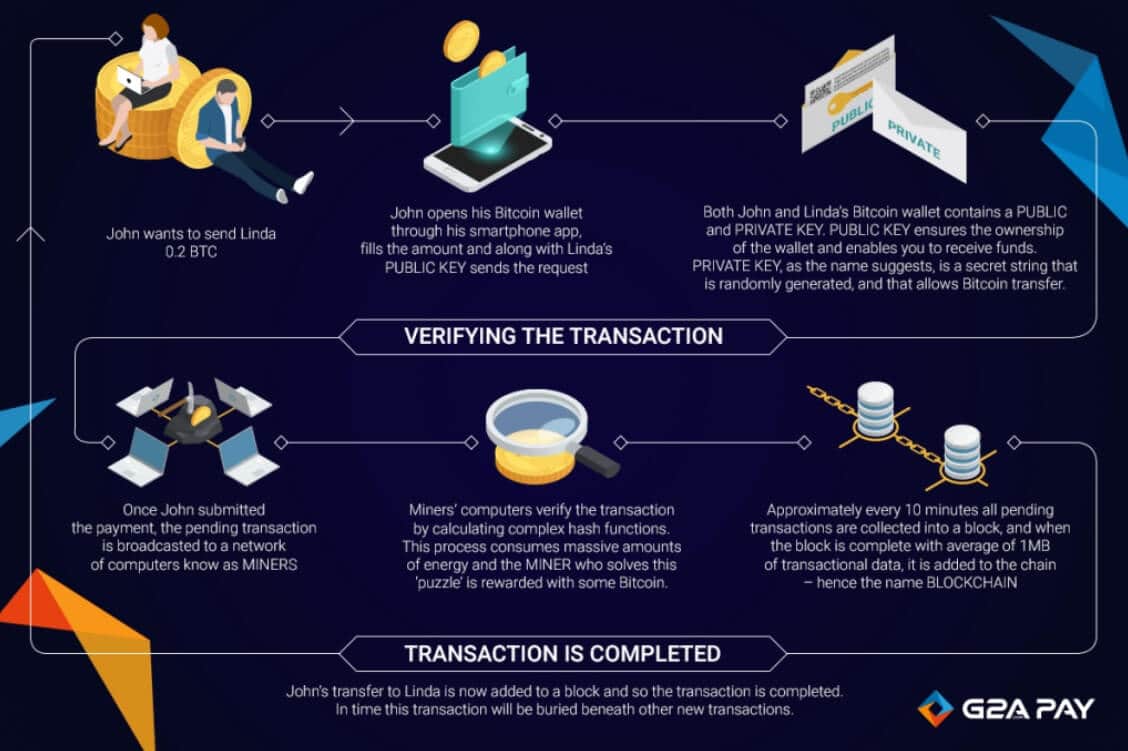
Bitcoin miners work to validate the transaction by solving complex mathematical problems. This process is often referred to as ‘Bitcoin mining' to confirm the funds have come from the rightful owner of the Bitcoin wallet. When the math problem is solved, the block that contains the transaction is added to the blockchain network.
The Bitcoin transaction on the network is considered to be final once a minimum number of network confirmations has occurred, which is usually between 3 and 6 confirmations. Once the transaction costs are settled, a new digital signature is created, which prevents the Bitcoin transaction from being altered once confirmed on the blockchain.
Related: How much does it cost to send Bitcoin?
Frequently Asked Questions
Are Bitcoin Transactions Instant?
Bitcoin transactions are not instant due to how Bitcoin was designed to ensure the validity of each transaction on the public ledger. Most wallets require a minimum of 3 confirmations to consider a Bitcoin transaction as final. Therefore, the transaction speed of Bitcoin can be at least 30 minutes to arrive in another wallet based on the approximate time to complete a single Bitcoin confirmation of 11 minutes.
How Long Does It Take To Transfer Bitcoin From One Exchange To Another?
Depending on the network congestion at the time of the transaction and the number of Bitcoin confirmations required, it can take between 10 minutes to 1 hour for funds to arrive in a crypto trading exchange. The larger crypto exchanges have been reducing the number of confirmations required from 3 to 2 to increase the Bitcoin deposit speeds.
How Long Does It Take To Transfer Bitcoin From Coinbase To Binance?
Binance has reduced the number of Bitcoin confirmations from 2 to 1 for BTC deposits. Based on the median Bitcoin confirmation time, it will take approximately 11 minutes to transfer BTC to Binance once the blockchain has received the transaction details from the Coinbase wallet.
What Is A Bitcoin Confirmation?
A Bitcoin confirmation represents the number of blocks in the blockchain that have been accepted since the block that included the transaction detail. In other words, a Bitcoin transaction is finalized when it is included in a new block on the network. For example, if Person “A” buys Bitcoin and transfers it to Person “B”, the transaction will remain “unconfirmed” until the next block is created. Once this block is created, the transaction is considered to have 1 confirmation.


